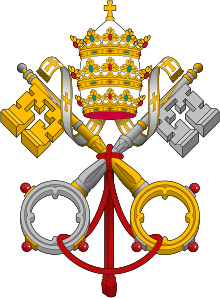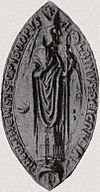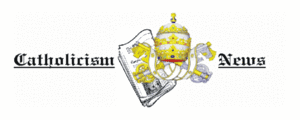Introduction The Catholic Church, also known as the Roman Catholic Church, is the largest Christian church, with 1.28 to 1.39 billion baptized Catholics worldwide as of 2024. It is among the world's oldest and largest international institutions, and has played a prominent role in the history and development of Western civilization. The church consists of 24 sui iuris churches, including the Latin Church and 23 Eastern Catholic Churches, which comprise almost 3,500 dioceses and eparchies located around the world. The pope, who is the bishop of Rome, is the chief pastor of the church. The Diocese of Rome, known as the Holy See, is the central governing authority of the church. The administrative body of the Holy See, the Roman Curia, has its principal offices in Vatican City, a small independent city-state and enclave within the Italian capital city of Rome, of which the pope is head of state. The core beliefs of Catholicism are found in the Nicene Creed. The Catholic Church teaches that it is the one, holy, catholic and apostolic church founded by Jesus Christ in his Great Commission, that its bishops are the successors of Christ's apostles, and that the pope is the successor to Saint Peter, upon whom primacy was conferred by Jesus Christ. It maintains that it practises the original Christian faith taught by the apostles, preserving the faith infallibly through scripture and sacred tradition as authentically interpreted through the magisterium of the church. The Roman Rite and others of the Latin Church, the Eastern Catholic liturgies, and institutes such as mendicant orders, enclosed monastic orders and third orders reflect a variety of theological and spiritual emphases in the church. Of its seven sacraments, the Eucharist is the principal one, celebrated liturgically in the Mass. The church teaches that through consecration by a priest, the sacrificial bread and wine become the body and blood of Christ. The Virgin Mary is venerated as the Perpetual Virgin, Mother of God, and Queen of Heaven; she is honoured in dogmas and devotions. Catholic social teaching emphasizes voluntary support for the sick, the poor, and the afflicted through the corporal and spiritual works of mercy. The Catholic Church operates tens of thousands of Catholic schools, universities and colleges, hospitals, and orphanages around the world, and is the largest non-government provider of education and health care in the world. Among its other social services are numerous charitable and humanitarian organizations. (Full article...) Selected article
 The papal election from November 1268 to September 1, 1271, following the death of Pope Clement IV, was the longest papal election in the history of the Roman Catholic Church. The election of Tebaldo Visconti as Pope Gregory X, the first example of a papal election by "Compromise," was effected by a Committee of six cardinals agreed to by the other remaining ten, occurred more than a year after the magistrates of Viterbo locked the cardinals in, reduced their rations to bread and water, and legendarily removed the roof of the Palazzo dei Papi di Viterbo.As a result of the length of the election, during which three of the twenty cardinal-electors died and one resigned, Gregory X promulgated the apostolic constitution, Ubi periculum, on July 7, 1274 (or 16), during the Second Council of Lyon, establishing the papal conclave, whose rules were based on the tactics employed against the cardinals in Viterbo. The election itself is sometimes viewed as the first conclave.
Selected image
 The Seven Sacraments by Rogier van der Weyden (ca.1448) "The seven sacraments, Baptism, Confirmation or Chrismation, Eucharist, Penance, Anointing of the Sick, Holy Orders, and Matrimony, instituted by Christ and entrusted to the Church, are efficacious signs of grace perceptible to the senses. They assist individuals in their spiritual progress and growth in holiness. Selected biography
 Albin (or Albinus) (d. 1269) was a 13th-century prelate of the Kingdom of Scotland. A university graduate, Albin is known for his ecclesiastical career in the diocese of Brechin, centred on Angus in east-central Scotland. Almost certainly a native of Angus, he appears to be a descendant of David of Scotland, Earl of Huntingdon, brother of King William I of Scotland, through an illegitimate son whom Earl David settled in the area around Brechin. Albin, himself an illegitimate child, made his career as a churchman in the local diocese, and served for some time as precentor of Brechin Cathedral before, in 1246, being elected Bishop of Brechin. He remained Bishop of Brechin until his death in 1269. Albin became Bishop of Brechin following an election and then a successful appeal for confirmation to the papacy. Pope Innocent IV's mandate for confirmation gave the details of the election.
Did you know...

Related portalsFeast Day of July 2
Selected quote

News
SubcategoriesTopics
The Holy Bible:
Particular Churches (grouped by liturgical rite):
Things you can do
External resourcesWikiProjectsAssociated WikimediaThe following Wikimedia Foundation sister projects provide more on this subject:
Discover Wikipedia using portals |
How Can We Help?



































Recent Comments